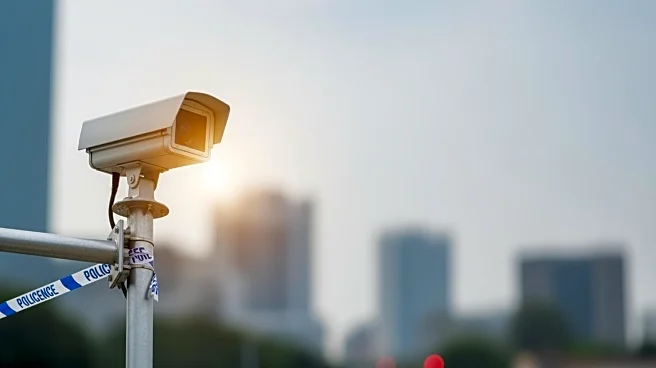What's Happening?
Newburgh Heights, a village in Cuyahoga County, Ohio, has reported collecting $4.3 million in fines from traffic cameras over a year-long period ending in July. This substantial revenue was generated by two traffic cameras located on Harvard Road. The
village's use of traffic cameras has become a lucrative source of income, despite state laws designed to limit profits from automated ticketing. These laws require that for every dollar earned from camera fines, the state deducts an equivalent amount from Local Government Fund payments, except for cameras placed in school zones. Cleveland, which previously used traffic cameras from 2005 until residents voted to ban them in 2014, is considering reinstating them as part of Mayor Justin Bibb's 'Vision Zero' plan to combat reckless driving.
Why It's Important?
The significant revenue generated by traffic cameras in Newburgh Heights highlights the financial impact of automated enforcement systems on local governments. While these cameras can enhance road safety by deterring traffic violations, they also raise questions about their role as revenue-generating tools. The debate in Cleveland over reinstating traffic cameras reflects broader concerns about balancing public safety with financial incentives. If Cleveland decides to bring back traffic cameras, it could influence other municipalities to adopt similar measures, potentially reshaping traffic enforcement strategies across the state. The financial implications for local governments, especially those with limited budgets, are substantial, as traffic camera fines can exceed state funding allocations.
What's Next?
Cleveland City Council members are considering the possibility of repealing the ban on traffic cameras, contingent on voter approval. If successful, this could lead to the reintroduction of traffic cameras in Cleveland, particularly in school zones and areas with high rates of serious accidents. The decision will likely involve public discussions and debates about the effectiveness and fairness of traffic cameras. Other municipalities may also evaluate their traffic enforcement strategies, potentially leading to increased use of automated systems. The outcome could set a precedent for how cities balance safety, revenue, and public opinion in traffic management.
Beyond the Headlines
The use of traffic cameras raises ethical and legal questions about privacy and the fairness of automated enforcement. Critics argue that these systems can disproportionately affect low-income drivers who may struggle to pay fines, leading to broader social implications. Additionally, the reliance on traffic cameras for revenue generation can create conflicts of interest, where the primary goal shifts from safety to financial gain. As cities consider adopting or expanding traffic camera programs, they must navigate these complex issues to ensure equitable and transparent enforcement practices.
















